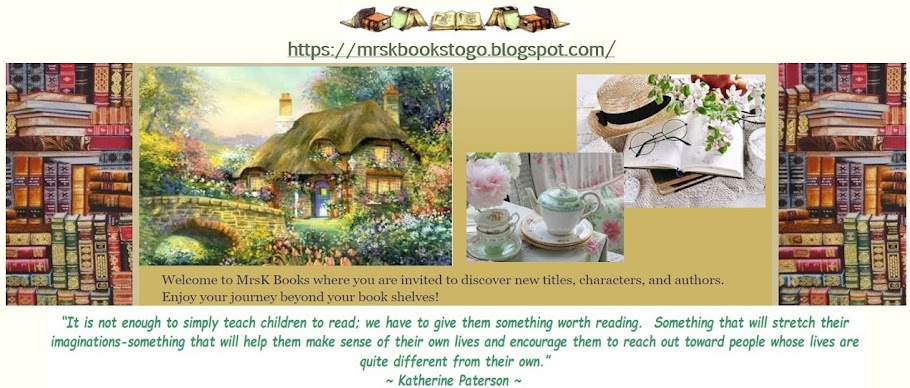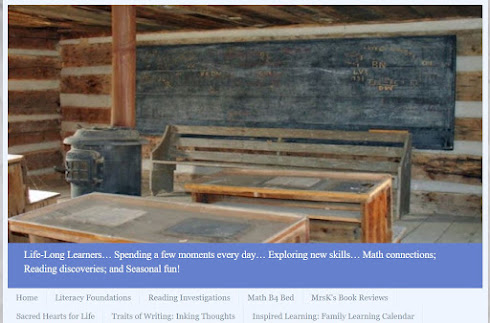ISBN: 9780470900307
Publisher's Synopsis:
In Reading in the Wild, reading expert Donalyn Miller continues the conversation that began in her bestselling book, The Book Whisperer. While The Book Whisperer revealed the secrets of getting students to love reading, Reading in the Wild, written with reading teacher Susan Kelley, describes how to truly instill lifelong "wild" reading habits in our students.Based, in part, on survey responses from adult readers as well as students, Reading in the Wild offers solid advice and strategies on how to develop, encourage, and assess five key reading habits that cultivate a lifelong love of reading. Also included are strategies, lesson plans, management tools, and comprehensive lists of recommended books. Copublished with Editorial Projects in Education, publisher of Education Week and Teacher magazine, Reading in the Wild is packed with ideas for helping students build capacity for a lifetime of "wild" reading.
MrsK's Review:
Do not attempt to read this book without hi-lighters, sticky-notes, a pen, and dedication.
Last year, as a staff, we decided to read three books that could inspire us as we searched for a new reading and language-arts curriculum. What began with Reading Magic by Mem Fox, lead us into Donalyn's first book entitled The Book Whisperer. Inspired doesn't quite catch the true meaning or level of excitement that began bubbling forth and into our classrooms.
Once summer arrived, I eagerly continued my journey with Reading in the Wild. During those lazy evenings I would curl up with an iced tea and "browse" through the book. If you are an educator, I'm sure you realize that "browsing" would not last long. Frustrated beyond belief with all of the insightful renovations firing off in my mind, I gave in and "set my learning stage" fully equipped with every note-taking tool I would need. I was now prepared to embark on a journey with a designated goal of "tweaking" next year's learning environment. What I unearthed was a quest of such magnitude that I needed to embrace this "re-molding," slow my pacing, and accept the collaborative mentoring from every page of Donalyn's leadership (one of the best educational investments of my career).
Within these pages, you will find reading ideas, techniques, and tools that will provide the "perfect" setting for our students to be set free "to read." As mature readers we read for various reasons. We are always on the "watch" for new discoveries. We search garage sales, book stores, library shelves, online book reviews and lists. If we are truthful... we probably have stacks of books awaiting our attention. We know how to use the power of a book to teach or explain the "how-to" for any situation we encounter whether it be cooking, automotive repairs, quilting, home make-overs, or searching for an address. Rarely are we asked to take a quiz about what we just read. Outside of a classroom, when was the last time you had to fill in a packet about the book you enjoyed? Was it an art project that lead you to a good read or was it a discussion about a character, a story line, the next book in a series?
"What are the habits of a lifelong reader?" If you agree that lifelong readers are those who: dedicate time to reading; self-select reading materials; share books and insights with other readers; have reading plans beyond their current book; and show preferences for genres-authors-topics... then... as an educator you are lead into taking a "critical look" at your own teaching practices (lesson designs, classroom management strategies, formative assessments, etc.). "What instructional components exist in your classroom that will support students as they develop lifelong reading habits?"
So many insights...
Within these pages, you will find reading ideas, techniques, and tools that will provide the "perfect" setting for our students to be set free "to read." As mature readers we read for various reasons. We are always on the "watch" for new discoveries. We search garage sales, book stores, library shelves, online book reviews and lists. If we are truthful... we probably have stacks of books awaiting our attention. We know how to use the power of a book to teach or explain the "how-to" for any situation we encounter whether it be cooking, automotive repairs, quilting, home make-overs, or searching for an address. Rarely are we asked to take a quiz about what we just read. Outside of a classroom, when was the last time you had to fill in a packet about the book you enjoyed? Was it an art project that lead you to a good read or was it a discussion about a character, a story line, the next book in a series?
"Wild reading is: readers who incorporate reading into their personal identities
to the degree that it weaves into their lives along with
everything else that interests them."
"What are the habits of a lifelong reader?" If you agree that lifelong readers are those who: dedicate time to reading; self-select reading materials; share books and insights with other readers; have reading plans beyond their current book; and show preferences for genres-authors-topics... then... as an educator you are lead into taking a "critical look" at your own teaching practices (lesson designs, classroom management strategies, formative assessments, etc.). "What instructional components exist in your classroom that will support students as they develop lifelong reading habits?"
So many insights...
- Community Conversations: mini-lessons with modeling, discussions, student practice and reflection
- Conferring Points: individualized support, assessment debriefing, student evidence, skills and tools
- Keeping track of your Reading Life: student documentation, reader's notebooks, reflections, targets and goals
- Classroom non-negotiables: in class silent reading, genre selection, writing topics, shared book recommendations, book reviews, reader communities, consistent lesson routines, and so much more
- What Readers Look Like: they "snatch a few minutes of reading time between appointments, while waiting, or before falling asleep, have a book for reading emergencies where ever you go
- Binge Reading: "There's something satisfying about falling into a book and walking with the characters until the journey ends." Burning through a book, staying up late, or grabbing the book during extra minutes.
- Reading Itinerary: as they read you confer
- Class Schedule: What does it look like/ What has more impact? The rule of thirds.
- Student-Selected Choices: Which titles are keepers? Surveys, lists, book review blogs, author websites, reader networking, book clubs, and random choices
- Preview-Share-Discuss: read-alouds, book buzz promotions, abandoning titles, book selection, selection reflections, evidence tracking, and classroom library standards
- Classroom Climate: "A community of readers and writers." Bottom line=acquisition of literacy skills, clarity of purpose, reading culture, close reading=mindful reading, strategic and knowledgeable readers, Epicenter readers, resident experts
- Teaching Style: goals, inquiry, conferencing functions, clarity of purpose, gathering evidence
- Reading Plans: life-long habits, targets-goals-tracking, challenges, genre gaps, reading preferences, reading habits
- Appendix: forms, lists, assessments, Genre titles
"Every book begins and ends with other people."
Organized, inspiring, and over-flowing with tested-examples... Take the time to invest in this journey...
Every student will benefit...
MrsK
Inspiring... A must read, share, discuss, and put into place within our classrooms!
#TITLETALK
#titletalk is an hour-long Twitter chat moderated by Donalyn Miller and Colby Sharp on the last Sunday of every month beginning at 8 PM EST. The first half hour is spent on a literacy education topic; the second half hour is spent recommending titles. The second half is what has earned #titletalk the unofficial title of “the most expensive thirty minutes” on Twitter.Archives of all of the #titletalk chats can be found at http://titletalk.wikispaces.com/.
NERDY BOOK CLUB
Donalyn Miller – along with Colby Sharp and Cindy Minnich – created the Nerdy Book Club website in December 2011 as the online home of the Nerdy Book Club Awards. It quickly grew to include daily posts that shared and promoted a love of reading – especially a love of reading books for children and young adults.You can read all of the posts and see the winners of the Nerdy Book Club Awards at http://nerdybookclub.wordpress.com.





No comments:
Post a Comment